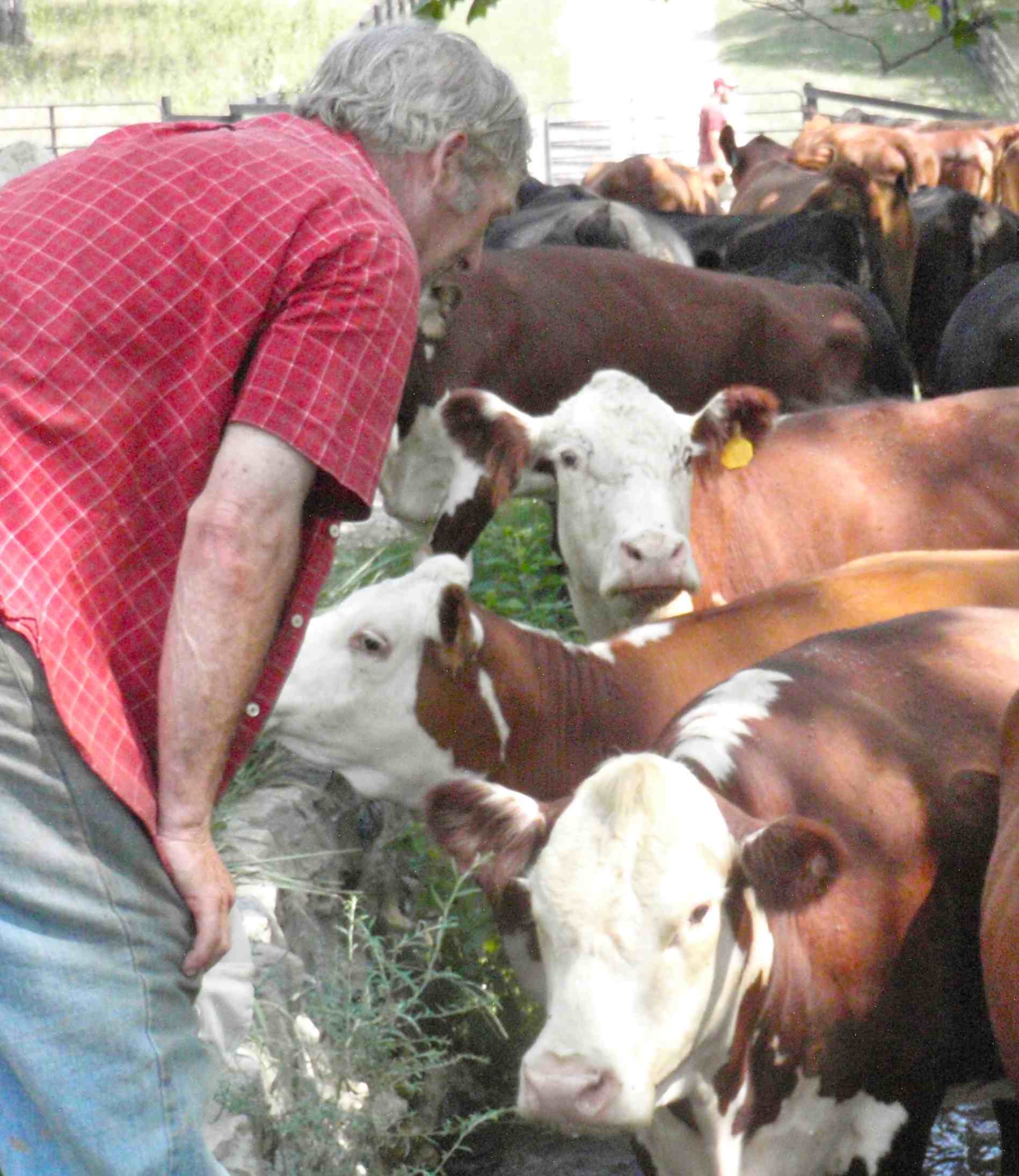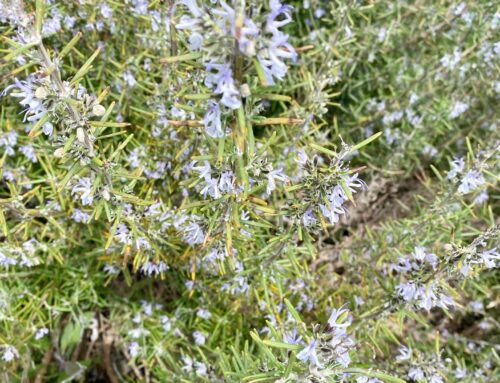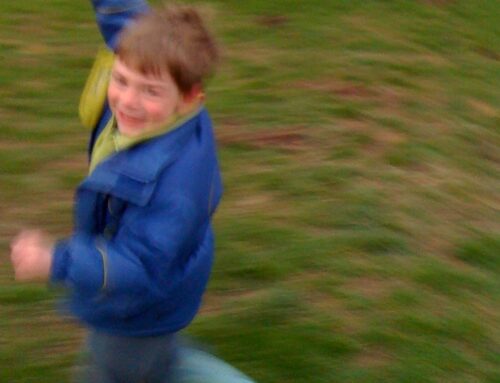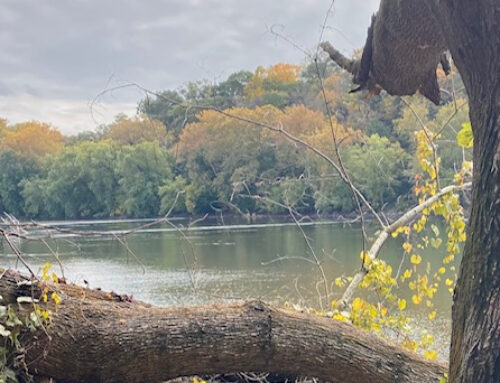My cows know the answers to the following questions. Do you?
#1) When grazing a field, should it be left ragged, messy and trampled, or grazed evenly, like a freshly mowed lawn?
#2) What’s the number one thing to watch out for when entering a fresh pasture?
#3) There’s a delicious looking plant you’ve never seen before. Is it poisonous?
#4) You could REALLY use a day at the spa, but you have no money. What do you do?

This pasture has been thoroughly trampled, and is 3 to 4 inches deep with grass and clover ‘mulch’. Notice how young clover is already springing through the ‘litter’ only a few days after the cows have moved.
Answer #1 Everyone’s experienced a pesky house guest who overstayed his welcome. Cows, however, know when it’s time to leave. An internal clock tells them when to stop grazing, and move on. Despite the widely embraced suburban lawn aesthetic, the only time cows will graze grass down to ‘lawnmower’ height is if they are absolutely forced to do so. They intuitively know that by leaving lots of ragged, messy, trampled pasture behind them, they promote moisture retention (keeping water in the soil), cooler surface temperatures (for better seed germination) and add loads of fertilizer in the form of trampled grass and fresh manure. Which leads us to our next answer…

These shaggy, dark green areas are where manure has been deposited in the past. The encircling pasture is distinctly shorter; the cows won’t eat near the old manure. Click on the image for a closer look.
Answer #2 Cows won’t eat dirty food, and cleanliness is the first thing they check when they enter a pasture. They are especially careful not to eat grass near manure; cows can even tell where a manure patty has been several years prior. Although the cow pie might have disappeared into the soil, cattle will fastidiously graze around these areas in a wide circle, steering clear of residual bacteria and parasites. Cows don’t like the thought of eating near poop any more than we do, and if given the chance, they won’t.
Answer #3 Remember when your mom told you to never touch a hot stove? If you were anything like me, you probably did anyway (it was an accident, I swear!). Scorched fingers eventually heal. Ingesting a poisonous plant, however, can be fatal.
On a farm like ours, where no herbicides are used, and plant diversity is encouraged, there are several toxic weeds growing in and around our pastures. How do I sleep at night, knowing that my herd might be munching deadly nightshade or poisonous hemlock beneath the light of the moon? Because just like with humans, moms make the best teachers.
Cows teach their calves what to eat. How do they do this? Young animals observe which plants their mothers select, just as their mothers did before them. Eons of wisdom has been silently (or perhaps telepathically? Sometimes I wonder…) passed down through these animals. It’s one of their most mystifying attributes.
Answer #4 Cows love to give themselves mud facials. Talk about saving money at the spa! If a herd discovers an exposed patch of earth in the side of a hill, they will vigorously rub their faces until they are absolutely slathered in mud (I’ve never snapped a photo of this hilarious phenomenon, but will post one in the future).

Cows will stand in line to flamboyantly grind their faces against rough, gritty dirt outcrops like this one (behind fence wire), especially after a good rain. The next super model trend, perhaps?
Why do they do this? Probably because, like an afternoon in a hot mud bath, it feels fabulous. But more importantly, it discourages flies and other parasites, as well as serves as a source for important deep-soil minerals. Much like allowing cowbirds to sit on the bridge of their noses and eat flies, cows know how keep their faces beautiful while remaining thrifty.
Okay, time out. Who am I kidding? Everyone knows that cows are stupid, right? All they do is stand around all day in a concrete feed lot, eating corn and belching methane. Mooooo! MoooooOOOOOooooo! Hey, look at me, I’m a big dumb cow!
Even after years of farming, I’ve still amazed by sentiments such as these. It’s not unusual to hear visitors earnestly inquire as to which of our animals are the least intelligent. Frequently, they offer their own opinions, remarking on the stupidity of pigs, sheep or turkeys with the air of a college student dismissing the intellectual prowess of junior high schoolers.
“I’ve got to hand it to you,” one visitor told me recently, as we walked amongst our flock of free-range chickens. “Working with animals that are so dumb… it really takes dedication.”
“What makes you think they’re unintelligent?” I asked, genuinely curious.
“Because…” he replied, gesturing. “Just look at them. I mean, it doesn’t take an Einstein to see that chickens are pretty stupid creatures.”
I smiled to myself. Not surprisingly, it was Albert Einstein who said: “Everybody is a genius. But if you judge a fish by its ability to climb a tree, it will live its whole life believing that it is stupid.”
Chickens, cows, and other farm animals are no different. They might not speak Esperanto, or discuss Aristotle beneath the mulberry bush. But put them out on pasture, and their natural intelligence shines. Conversely, forced into a concrete feedlot or a wire cage, they can appear as ‘stupid’ as a fish in a tree. (It was no accident that I titled this the ‘Free-Range I. Q. Test.’)
The question becomes, then, are we smart enough to recognize this natural intelligence? Given the opportunity, free-range animals will help heal depleted soils, remove carbon from the air (returning it to the earth through rotated, perennial grass roots), and promote natural plant diversity. Raising animals this way seems like a classic no-brainer. Sometimes, I wonder if cows might be smarter than humans.











Leave a Reply